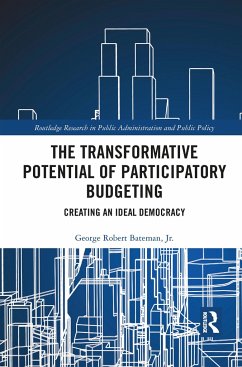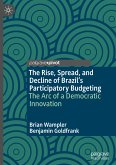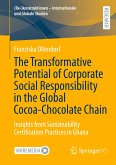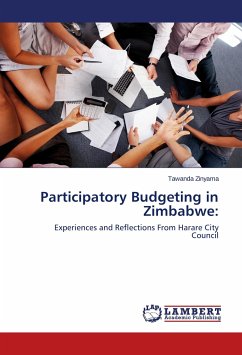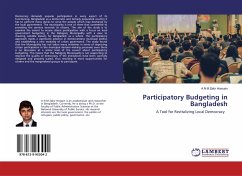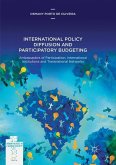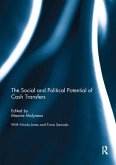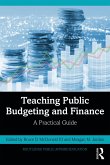In this book, George Robert Bateman, Jr. presents a philosophical examination of the potential benefits of participatory budgeting (PB), with recommendations of how they might be realized.
The work of social philosophers like Thomas Jefferson, John Dewey, Robert Putnam are studied to better understand the potential benefits and their effect on individuals and communities. Using social provisioning and John Fagg Foster's theories of instrumental value and institutional adjustment, Bateman demonstrates how participatory budgeting in New York City (PBNYC) can realize its full potential and transform individual participants into their better selves and also transform their communities. This transformation can occur when participants are able to make decisions about things that matter in their lives. As more of us become empowered and actively engaged in deliberations concerning local economic/political issues the more we will experience public happiness, greater understanding of others, greater development of our morality, and an increased sense of belonging.
The Transformative Potential of Participatory Budgeting will be of great interest to scholars in the fields of normative political theory, political philosophy, local politics, heterodox economics, institutional economics, political sociology, urban sociology, and community sociology.
The work of social philosophers like Thomas Jefferson, John Dewey, Robert Putnam are studied to better understand the potential benefits and their effect on individuals and communities. Using social provisioning and John Fagg Foster's theories of instrumental value and institutional adjustment, Bateman demonstrates how participatory budgeting in New York City (PBNYC) can realize its full potential and transform individual participants into their better selves and also transform their communities. This transformation can occur when participants are able to make decisions about things that matter in their lives. As more of us become empowered and actively engaged in deliberations concerning local economic/political issues the more we will experience public happiness, greater understanding of others, greater development of our morality, and an increased sense of belonging.
The Transformative Potential of Participatory Budgeting will be of great interest to scholars in the fields of normative political theory, political philosophy, local politics, heterodox economics, institutional economics, political sociology, urban sociology, and community sociology.
"Bateman's contribution here is significant. His blend of pragmatic and normative questions offers useful insights to both political theory and institutional design. The Transformative Potential of Participatory Budgeting makes an important, timely, and convincing argument about the need for more democratic participation. If it combines this with further thought about how to redress power inequities both in deliberation and in wider society, it can offer a new way of thinking about politics to faculty and students from a range of disciplines."
Democratic Theory
"Improving the deliberative practices associated with PB, the author argues, both strengthens democracy against the rising tide of right-wing populism and addresses widening inequalities by bringing marginalized groups into decision-making processes."
Governance: An International Journal of Policy, Administration, and Institutions
"[T]he book acts as an introduction to Heterodox Economics applied to municipality-level public policy".
The Independent Review: A Journal of Political Economy
Democratic Theory
"Improving the deliberative practices associated with PB, the author argues, both strengthens democracy against the rising tide of right-wing populism and addresses widening inequalities by bringing marginalized groups into decision-making processes."
Governance: An International Journal of Policy, Administration, and Institutions
"[T]he book acts as an introduction to Heterodox Economics applied to municipality-level public policy".
The Independent Review: A Journal of Political Economy

